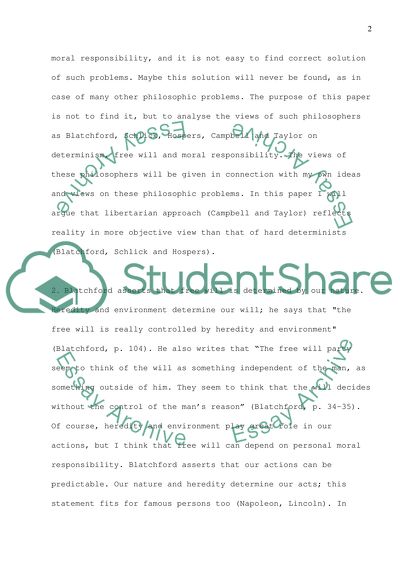Cite this document
(“Determinism, free will and moral responsibility Essay”, n.d.)
Retrieved from https://studentshare.org/philosophy/1517320-determinism-free-will-and-moral-responsibility
Retrieved from https://studentshare.org/philosophy/1517320-determinism-free-will-and-moral-responsibility
(Determinism, Free Will and Moral Responsibility Essay)
https://studentshare.org/philosophy/1517320-determinism-free-will-and-moral-responsibility.
https://studentshare.org/philosophy/1517320-determinism-free-will-and-moral-responsibility.
“Determinism, Free Will and Moral Responsibility Essay”, n.d. https://studentshare.org/philosophy/1517320-determinism-free-will-and-moral-responsibility.


